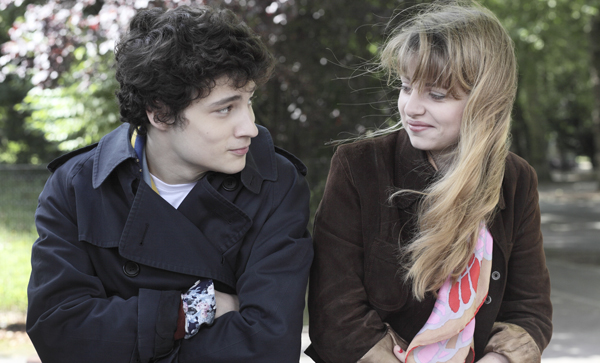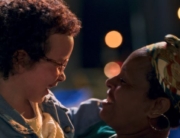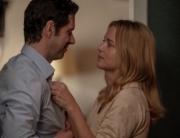Returning from Tajikistan to his native France after a long stay, anthropologist Paul Dédalus (Mathieu Amalric) is detained at the airport for a lengthy interrogation. His smooth, insinuating questioner (André Dussollier, used to silken, enigmatic effect) aims at settling a long-ago deception involving his passport, but the sit-down leads Paul to a reckoning with a complex past. My Golden Days encompasses many lives in one. Like all our parallel lives, some make more sense than others in this rich, thought-provoking, and overstuffed film.
Director Arnaud Desplechin has divided the movie into three main parts. The first is a tense Cold War interlude set in Minsk, Belarus—easily the tightest, strongest part of the narrative. The second is a luxuriant evocation of first love in Paul’s tattered hometown of 1970s-era Roubaix in northern France. And the third is the inevitable adult reckoning of what has gone before as Paul, now older and alone, confronts his past in an emotional final scene in Paris.
Paul comes from a troubled family, and we watch a motherless boy grow up searching for mentors and people to trust. An elderly aunt and an African woman professor respond to the need they see in Paul and take him under their wing. Memories of them linger throughout his life. The women’s input and his sad upbringing may have imbued the young man with the impulse to give to others; the director has created a protagonist with a penchant for self-deprecation, even self-sacrifice. In Minsk, the teenage Paul will rashly hand over his travel documents to a Jewish dissident and place himself in danger to strike a blow against the Soviet empire. Later, he’ll uncomplainingly take punches to win the woman he loves.
Nowhere does Paul’s tenacity of giving too much away come at greater cost than the boy’s youthful romance with Esther (Lou Roy-Lecollinet), the town’s seducer and mantrap. Esther utterly captivates Paul, and he devotes his all to her, although the faithless girl taunts him with her other amours. Desplechin devotes great effort to communicate the yearning totality of youthful infatuation. Regrettably, Esther’s femme fatale wiles and caprices grow tiring, and so does her breaking the fourth wall to purr love letters to the camera. We miss the knowing adult sophistication of the interrogation scenes at the movie’s start.
Later, as a TV screen shows the Berlin Wall collapsing, Paul notes that he’ll miss it. Communism and its demise hang over the movie. So does the haunting specter of lost love of all kinds. We are left pondering dreams whose promises have utterly vanished, like the workers’ utopia and the French franc. But along the way, it’s been a vivid, absorbing ride.







Leave A Comment